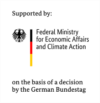Research project demonstrates high potential of methanol as sustainable fuel
Aachen, February 2024 – The research project “Methanol Standard”, coordinated by FEV, has been successfully completed. The focus of the project was to investigate the technical fundamentals needed for the European standardization of methanol as a fuel. The results demonstrate that sustainably produced methanol constitutes a promising CO2-neutral alternative to fossil fuels in future mobility. The objective is to promote fuel diversification and reduce life-cycle emissions to almost zero. In this evolutionary process, Germany is supposed to pave the way as a role model and develop a standard that can subsequently be applied all over Europe.
FEV contributed its long-standing experience and expertise as a globally leading engineering service provider for the transportation and energy sectors to the project. This included three-dimensional computational fluid dynamics (CFD) simulations as well as the development of an adapted control technology for a single-cylinder engine used in the project. In addition, FEV provided support in the area of complete vehicle tests by conducting cold start examinations. It was possible to prove that the engine of one of the project partners, which was operated with methanol, was still capable of starting at low temperatures.
“The surveyed data provides valuable insights into the technical feasibility and the necessary subsequent evolutionary steps,” said Dr. Thorsten Schnorbus, Director Business Development at FEV energy. “Together with our partners, we have investigated the compatibility of methanol with existing technologies and fuel standards and identified potential areas for further research and development activities. These include suitable additives for improving lubrication and combustion properties, or the use of methanol in fuel cells,” said Dr. Schnorbus, summarizing the key findings of the study.
Another important finding of the investigations: from a technical point of view, existing injection systems can already be operated with methanol, but there is a need for development at the high injection pressures currently in use. Methanol can be mixed with conventional fuels at 15 percent as an additive (M15) but can also be used in pure form at 100 percent (M100).
“Methanol Standard” comprised a total of 17 research centers and associated partners. In addition to universities, research institutes, small and medium-sized enterprises, these also included globally active companies and well-known manufacturers from the automotive and commercial vehicle industries.
In parallel with the European research activities, the application of methanol with its high potential for reducing CO2 emissions is also being driven forward in large test fleets in China. To increase the visibility of this development and highlight the opportunities for methanol as an energy source and fuel, a standardization group for M100 has been set up based on the findings.
The power-to-liquid technologies required for the sustainable generation of methanol have already reached a very high level of maturity and will be available on the market in the nearby future. Using hydrogen produced from renewable sources, these plants convert CO2, for example from biological waste products, into methanol. Pilot plants for this technology are in operation in Iceland, the Netherlands, northern Germany and Chile, among others, already contributing to the climate-neutral production of sustainable fuels.
From FEV perspective, the application fields for sustainable fuels vary in terms of their potential. “We rate the benefits in maritime propulsion, large construction or agricultural machinery, and locomotives very highly globally,” said Dr. Schnorbus. “For passenger cars and smaller machines, on the other hand, we see their potential in Europe more in special applications.”
The involvement of FEV as coordinator of “Methanol Standard” is another example of the company’s commitment to developing sustainable fuels. Last year, the first 15,000 liters of renewable fuel based on green methanol were produced in Freiberg, Saxony (Germany), as part of the “DeCarTrans” project, also led by FEV.
About FEV
FEV has always pushed the limits.
FEV is a globally leading engineering provider in the automotive industry and internationally recognized leader of innovation across different sectors and industries. Professor Franz Pischinger laid the foundations by combining his background in academia and engineering with a great vision for continual progress. The company has supplied solutions and strategy consulting to the world’s largest automotive OEMs and has supported customers through the entire transportation and mobility ecosystem.
As the world continues to evolve, so does FEV.
That’s why FEV is unleashing its technological and strategic expertise into other areas, applying its forward thinking to the aerospace and energy sectors. Thanks to its software and system expertise, the company also leads the way making intelligent solutions available to everyone. FEV brings together the brightest minds from different backgrounds and specialties to find new solutions for both current and future challenges.
But FEV won’t stop there.
Looking ahead, FEV continues to push the limits of innovation. With its highly qualified >7,100 employees at more than 40 locations globally, FEV imagines solutions that don’t just meet today’s needs but tomorrow’s. Ultimately, FEV keeps evolving – to a better, cleaner future built on sustainable mobility, energy and software that drives everything. For the company’s partners, its people and the world.
#FeelEVolution
The research project “Investigation of the technical basis for the standardization of methanol fuels in Europe” was funded by the Federal Ministry for Economic Affairs and Climate Action under the funding code 19I20005A-I.




